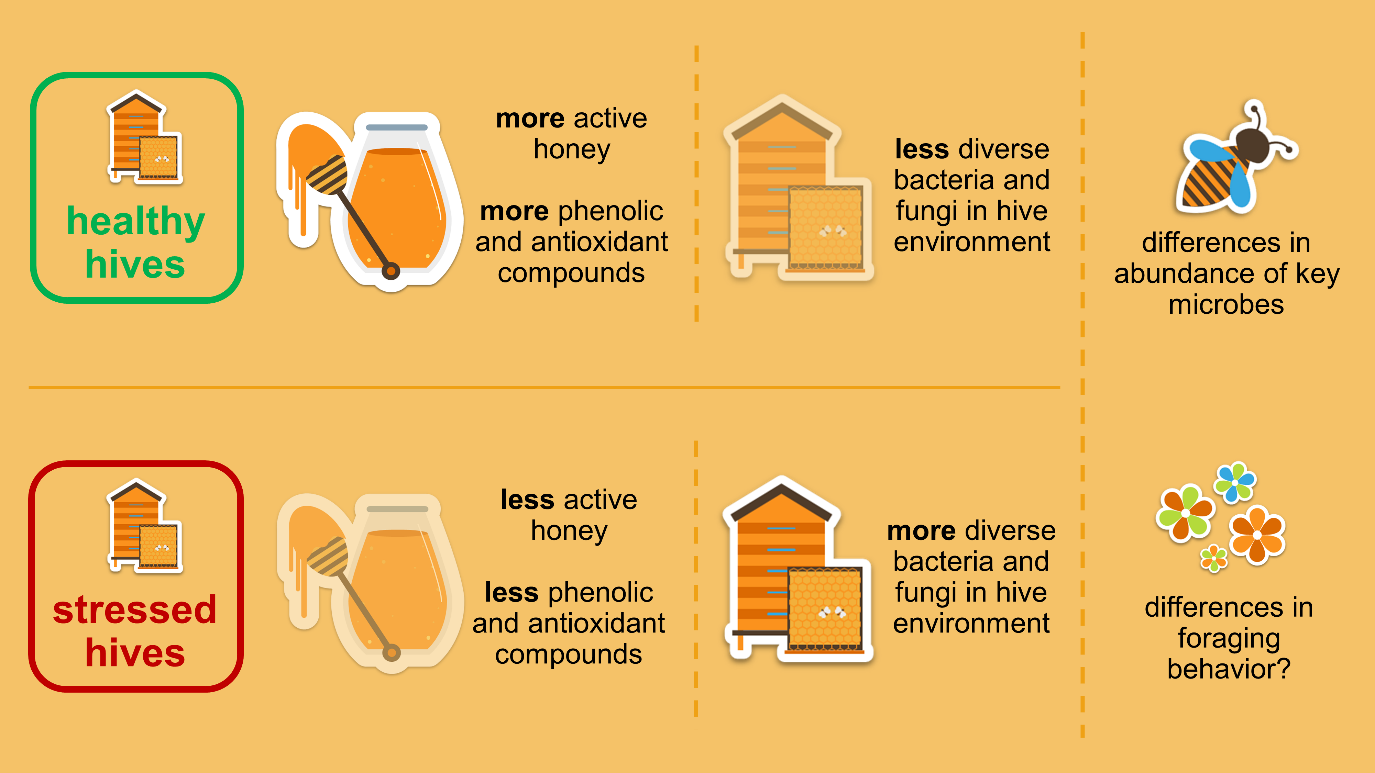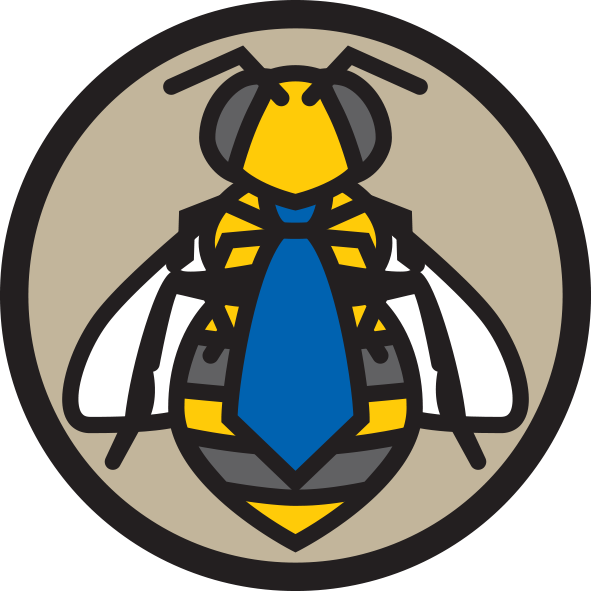Growing evidence suggests that honey is vitally important to hive function and overall health. The antimicrobial properties of honey are well-established in the context of human health, but fewer studies have connected this to bee health. Although floral source, geographic location, and environmental conditions are typically studied to understand honey activity, it is important to recognise that the bees themselves contribute antimicrobial components like peptides and enzymes to honey, and that their foraging behaviour also determines what kinds of nectar become honey.
The Impact of Hive Stress and Honey Activity
With increasing threats and stressors affecting honey bee populations, understanding the full range of impacts of hive stress on bees and their hive products is crucial.
In a recent study conducted at the University of Sydney, our research group investigated the antimicrobial and chemical properties of honey from healthy hives and hives experiencing signs of stress including low populations, queenlessness, and signs of disease. These hives were located in the same apiary, assuming consistent climatic factors and access to identical floral resources.
Our findings revealed a significant difference in antimicrobial activity, with healthy hive honey exhibiting higher activity than stressed hive honey. This difference was attributed to variations in the chemical composition of the honey, particularly to increased levels of phenolics and antioxidants in healthy hive honey, compounds that contribute to its antimicrobial potency.

Infographic showing the impact of hive stress and honey activity – Hive health, honey activity, and microbial diversity.
Understanding the Role of the Microbiome
The bee gut and hive environment house diverse microbial communities, collectively known as the microbiome. These microbes assist in digestion, detoxification, and immune function.
Under stressful conditions, the microbiome can become destabilised, compromising bee and hive health. To evaluate microbial dynamics, we compared bacterial and fungal populations in the bee gut and hive environment between healthy and stressed hives.
Our results showed that stressed hives had more diverse bacterial and fungal communities compared to healthy hives indicating an impaired ability to prevent microbial overgrowth. Differences observed in the abundance of key plant-associated microbes in the bee gut between healthy and stressed hives also suggested potential differences in foraging behaviour.
Implications for Beekeepers
Taken together, these results suggest that healthy hives are producing honey with increased antimicrobial activity and therefore an increased ability to prevent microbial growth in the hive environment, likely feeding back into maintaining hive health. These findings highlight the importance of understanding and proactively managing honey bee health for beekeepers as even seemingly minor stressors can have implications for overall hive fitness and the economic potential of hive products. By ensuring bees have access to high-quality nutrition and minimising stressors such as pesticide exposure, beekeepers can contribute to the production of high-quality honey and the long-term success of honey bee colonies.
Acknowledgements:
- NSW Bushfire Industry Recovery Project Website: https://www.nsw-bushfire-recovery.com/home
- Fernandes KE, Stanfield B, Frost EA, Shanahan ER, Susantio D, Dong AZ, Tran TD, Cokcetin NN and Carter DA. (2023). Low levels of hive stress are associated with decreased honey activity and changes to the gut microbiome of resident honey bees. Microbiology Spectrum e00742-23. doi: doi.org/10.1128/spectrum.00742-23
- This article was peer-reviewed by Dr Soumi Paul Mukhopadhyay and Nadine Chapman.


One comment, add yours.
Duncs Honey
Well done team, excellent work